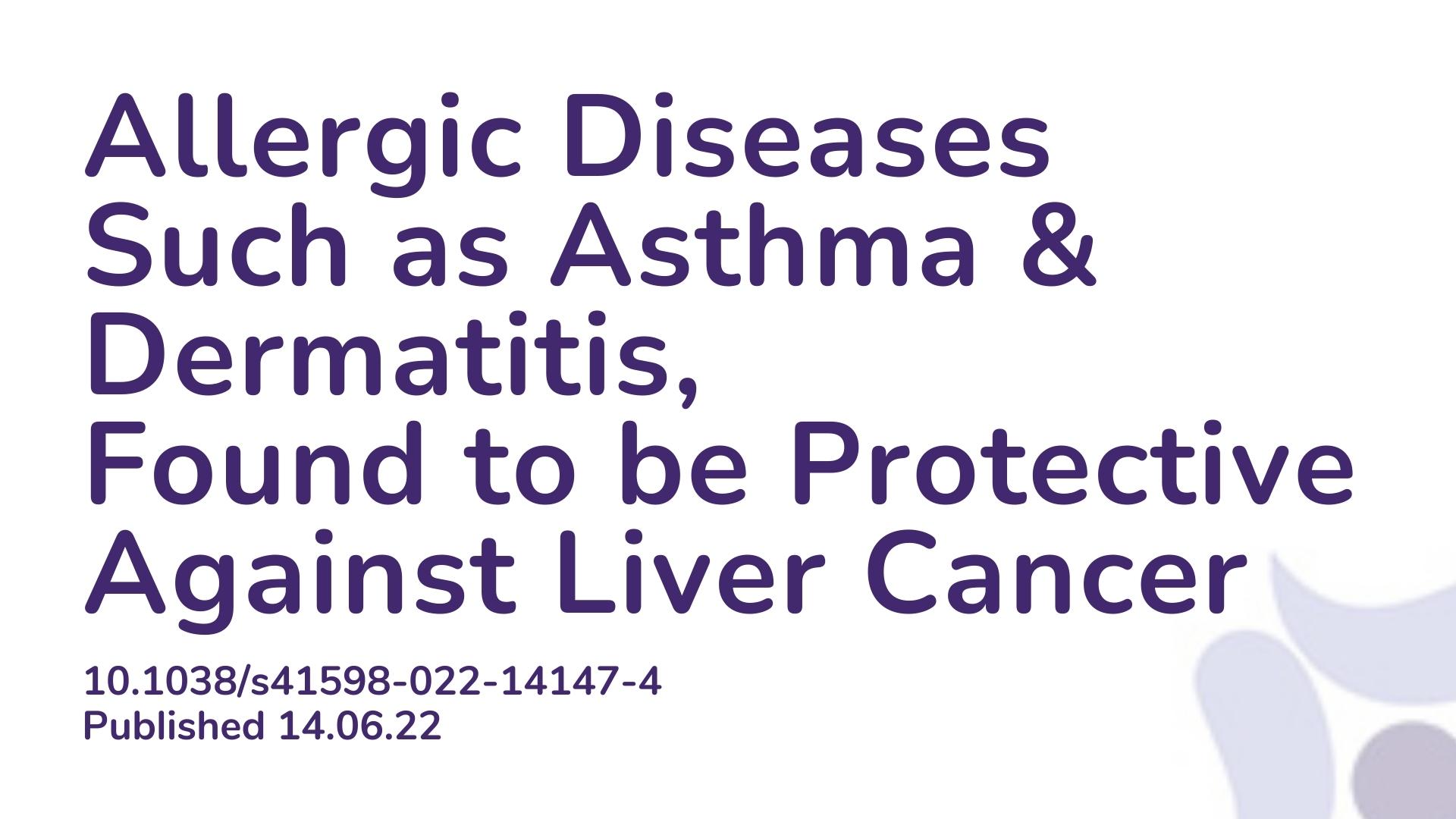Summary: The purpose of this paper was to analyse the association between allergic diseases such as dermatitis, asthma and allergic rhinitis with the risk of liver cancer, given that liver cancer is a leading cause of cancer incidence and mortality globally. The authors conducted a retrospective cohort study consisting of 405,512 Korean adults. This paper, amongst many others, has interestingly concluded that the presence of allergies has a protective effect on risk of liver cancer. There are many theories explaining the mechanism of this, however the most prominent is that an allergic reaction may also be expelling carcinogens within the human body before an opportunity to turn malignant. More studies in this area are needed to identify the exact mechanism.
Abstract:
A number of studies have proposed an inverse association between allergic diseases and risk of cancer, but only a few studies have specifically investigated the risk of primary liver cancer, including hepatocellular carcinoma (HCC) and intrahepatic cholangiocarcinoma (ICC). The aim of this study was to evaluate the association of allergic diseases with risk of primary liver cancer. We conducted a retrospective cohort study of the Korean National Health Insurance Service database consisted of 405,512 Korean adults ages 40 and above who underwent health screening before January 1st, 2005. All participants were followed up until the date of liver cancer, death, or December 31st, 2013, whichever happened earliest. Those who died before the index date or had pre-diagnosed cancer were excluded from the analyses. Cox proportional hazards regression was used to determine the adjusted hazard ratios (aHRs) and 95% confidence intervals (CIs) for risk of primary liver cancer according to the presence of allergic diseases, including atopic dermatitis, asthma, and allergic rhinitis. The aHR (95% CI) for overall liver cancer among allergic patients was 0.77 (0.68–0.87) compared to those without allergic disease. Allergic patients had significantly reduced risk of HCC (aHR, 0.72; 95% CI 0.62–0.85) but not ICC (aHR, 0.95; 95% CI 0.73–1.22). The presence of allergies was associated with significantly lower risk of liver cancer among patients whose systolic blood pressure is lower than 140 mmHg (aHR, 0.64; 95% CI 0.62–0.78 for overall liver cancer; aHR, 0.64; 95% CI 0.52–0.78 for HCC) but this effect was not observed among patients whose systolic blood pressure is higher than 140 mmHg (aHR, 0.91; 95% CI 0.71–1.18 for overall liver cancer; aHR, 0.91; 95% CI 0.71–1.18 for HCC) The aHR (95% CI) for overall liver cancer of allergic patients with and without chronic hepatitis virus infection were 0.60 (95% CI 0.44–0.81) and 0.77 (95% CI 0.64–0.93), respectively. In addition, allergic patients without cirrhosis showed significantly lower risk of overall liver cancer (aHR, 0.73; 95% CI 0.63–0.83). Patients with allergic diseases have significantly lower risk of primary liver cancer compared to those without allergic diseases, which supports the rationale for immunotherapy as an effective treatment for liver cancer.
Article Publication Date: 14.06.22
DOI: 10.1038/s41598-022-14147-4



